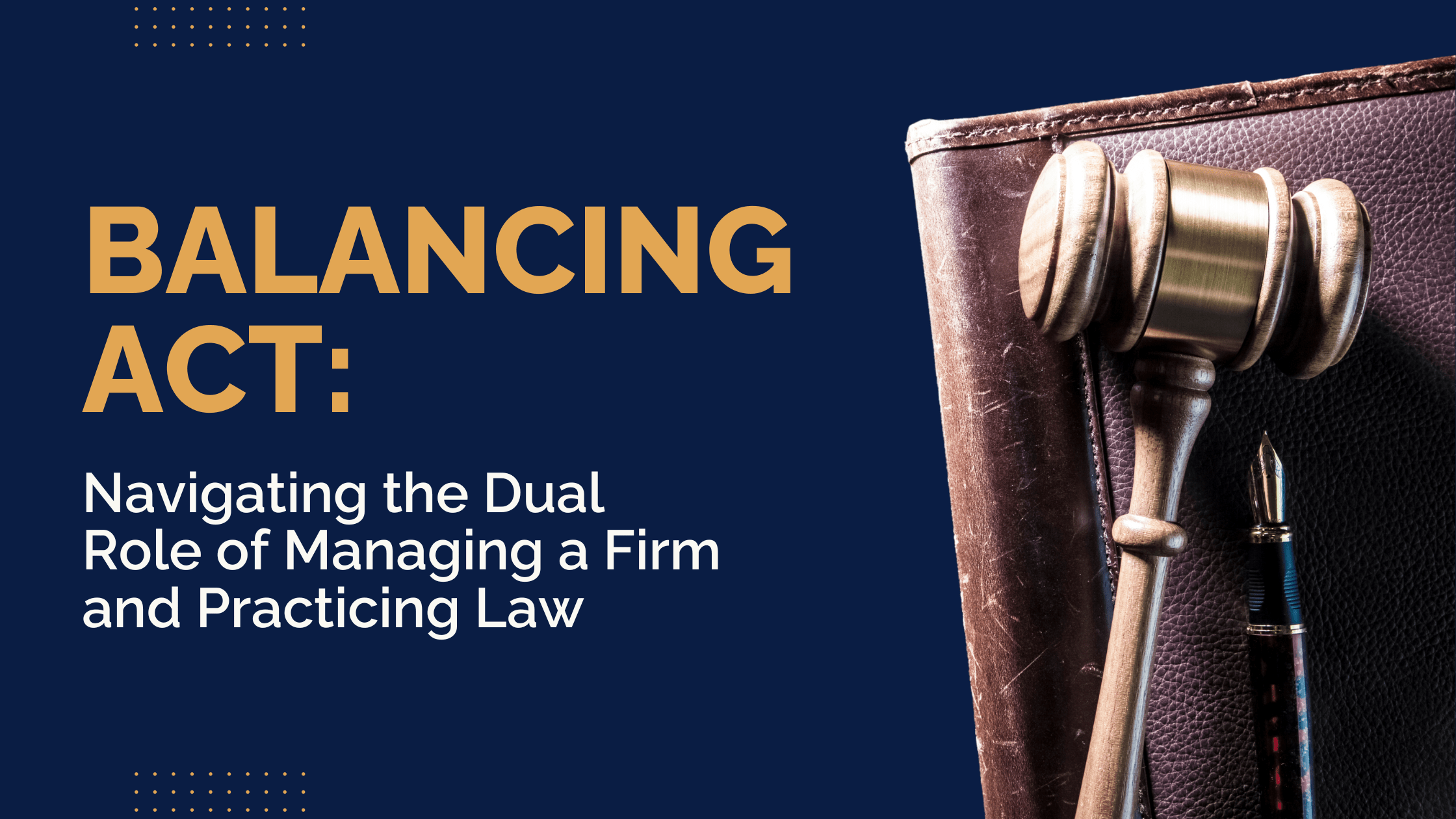The Life of a Lawyer: What’s Working and What Isn’t
The life of a lawyer isn’t easy. Despite all its rewarding aspects, the work itself requires incredible intellect and resourcefulness. Attorneys suffer with excessive workloads and stress. While it might seem like the solution is to roll up your sleeves and work harder, improving your work/life balance actually involves evaluating your work habits, changing them when necessary, and making time for yourself.
Following is a breakdown of common issues attorneys encounter and how to help manage them with tangible solutions.
Problem: Unrealistic Expectations from Clients
While every lawyer has to deal with difficult clients from time to time, “good” clients can take a toll on an attorney’s work/life balance and contribute to stress, too. This is because misconceptions about what lawyers do and how they do it abound. For example, movies that portray lawyers as saviors and best friends, blurs the line of an attorney’s role and contributes to clients’ unrealistic expectations.
Solution: Manage Client Expectations with Open Communication and Transparency
The truth is that even great clients, who you enjoy working with, can add to your stress with unrealistic expectations. Managing your clients’ expectations can help you establish healthy boundaries with them, safeguard your productivity, and handle their cases successfully.
Your best bet for managing expectations is to operate with transparency and open communication from the beginning. Overselling your abilities and making promises that you might not be able to keep is a recipe for confusion and conflict. Clients may come to you with fear and uncertainty, needing hope. While there’s nothing wrong with providing compassion and comfort, it’s important to do so with a balanced approach. Your communication with your client should help him or her understand your role in their case and your capabilities. Set boundaries for what you can provide and what you can’t with transparency and open communication.
Problem: Long Work Hours
Any given workday for an attorney is hectic. Their schedules are unpredictable. From courts rescheduling hearings to unanticipated developments in a client’s case, there are many days where an attorney’s work cuts into family time and sleep. While some long days are unavoidable, consistently long days with an excessive workload can affect your health and wellbeing.
Solution: Improved Time Management
While most attorneys know that they signed up a career with long, arduous work hours, there are ways to work smarter for a better work-life balance. Improving time management with productive work habits is an effective strategy for shortening one’s work hours and reducing stress.
Productive attorneys control their schedules as best they can by eliminating distractions, delegating work tasks to subordinates, and devoting time to specific tasks such as returning clients’ calls and working without interruptions. A good time management strategy begins with tracking all your hours and evaluating your habits. If you find that interruptions like phone calls and emails slow you down, cut down on multitasking and block your time for specific tasks. Similarly, identifying and eliminating time-wasting activities like water cooler gossip and three-hour lunches will provide more control of an already unpredictable schedule.
Problem: Excessive Stress and Anxiety
While helping your clients and resolving cases is rewarding, it comes with a significant amount of stress. It’s no secret that attorneys struggle with excessive stress, anxiety, and depression. Long work hours wear down one’s body and mind while also isolating them from friends and family. Hectic and unpredictable work hours can make it harder to prioritize self-care but ignoring your own needs will lead to a work/life imbalance and will take a toll on your wellness.
Solution: Practice Self-Care
Being overworked might make it harder to justify time for yourself but the truth is that you can’t afford to ignore your needs. Your mind and body need to recharge so you can work optimally and meet the obligations of your personal life. Understanding that self-care is a necessity will make it easier to dedicate your time to keeping your body and spirit healthy with good eating habits, a workout routine, and even meditation. Hitting the gym, taking hikes in scenic locations, and adopting a daily meditation practice will work wonders for managing stress and anxiety.
I can make meditation easy by following this 7 day practice. Check out my website at www.mindoverlaw.com to learn more about how we can help you thrive in life and your law practice.



